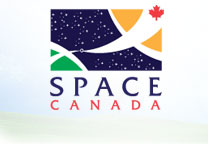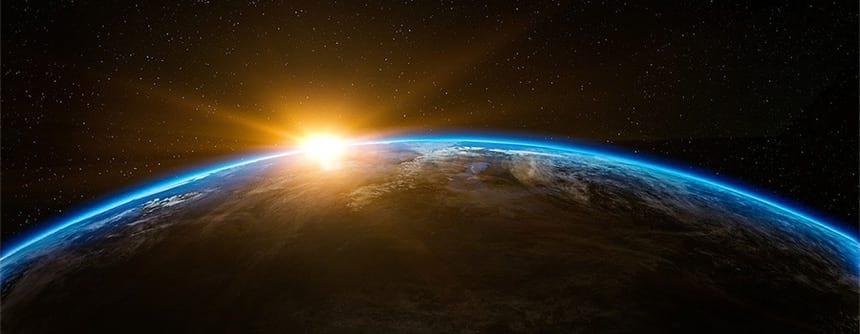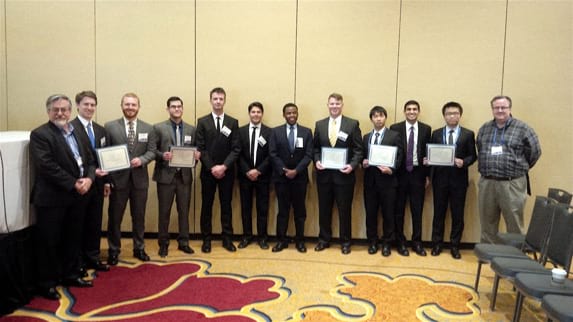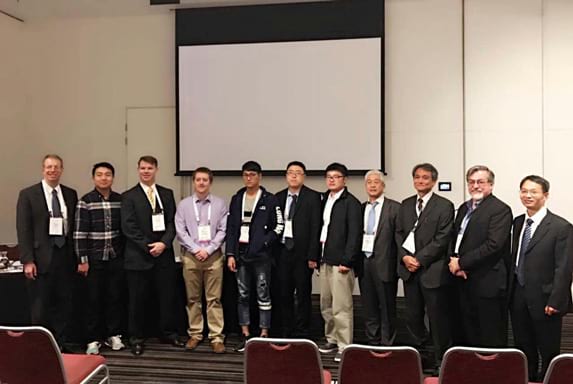   |
Results of the 2016-2017 Competition
 |
Stage 1 / Semi-Finalist ResultsDuring 2017, the first year of this new competition, 16 projects were proposed from 5 different countries (including China, the US, Japan, the Netherlands, and India) and involving some 14 academic institutions, 8 faculty advisors and 49 graduate and undergraduate students. From the submitted proposals, 7 were selected as semi-finalists and were invited to present (with support from SPACE Canada) at the NSS International Space Development Conference® held May 25-29 2017 in St. Louis, Missouri USA during the ISDC® 2017 Space Solar Power Track.The semi-finalist teams include students from the following institutions: Dalian University of Technology (China), Delft University of Technology (The Netherlands), Harbin Institute of Technology (China), Hosei University (Japan), Indiana University (USA), Kitawato University (Japan), Purdue University / Indianapolis (USA), Shizuoka University (Japan), The Graduate University of Advanced Studies (Japan), Tokai University (Japan), Tokyo University of Science (Japan), and the Allied Universities Team (USA) comprising the University of Maryland (Baltimore County and College Park Campuses), the Hampton University Princeton University, the University of Colorado / Boulder, and Hampton University. (Teams from China participated by online presentation and are not shown in the photo below.) |
 2016-2017 SSP Student Semi-Finalists with Competition Organizers @ ISDC 2017
2016-2017 SSP Student Semi-Finalists with Competition Organizers @ ISDC 2017 |
| Following a series of semi-finalist presentations, three teams were invited (with travel support) to present technical papers summarizing their research at the Space Power Symposium at the 68th International Astronautical Congress (IAC 2017) during 25-29 September in Adelaide, Australia: the Dalian University of Technology (China), the Harbin Institute of Technology (China) and the Allied Universities Team (USA). |
Stage 2 / Final ResultsAt the IAC 2017 Power Symposium Session C3.1 in Adelaide, Australia, three finalist student teams made their presentations with the following results: the winning team was the Harbin Institute of Technology, presenting “Flexible Adjustment Model for SPS-ALPHA: Optical Solution”; the runners-up were (1) the Allied Universities Team, presenting “Impact of Emerging PV Technologies on a Solar Power System”; and (2) Dalian University of Technology, presenting “Orbital Station Keeping Control for SPS-ALPHA via Electric Propulsion and Solar Pressure”. |
 2016-2017 SSP Student Finalists @ IAC with some Power Committee Members
2016-2017 SSP Student Finalists @ IAC with some Power Committee Members |
| SPACE Canada and the cooperating organizations congratulate all of the teams (Semi-Finalist and Finalist) on their outstanding research projects in this, the first year of the International SSP Student Competition. |
| For additional information, please see the following Results of the 2016-2017 Competition Press Release. |
Learn more about The International Space Solar Power Student Project Competition |
| See results of the 2023-2024 competition See results of the 2022-2023 competition See results of the 2021-2022 competition See results of the 2020-2021 competition See results of the 2019-2020 competition See results of the 2018-2019 competition See results of the 2017-2018 competition See results of the 2016-2017 competition |
SPACE Canada - Solar Power Alternative for Clean EnergySPACE Canada Corporation is a non-profit organization dedicated to the promotion of international dialogue on space-based solar power. Its name derives from the organization’s mission: Solar Power Alternative Clean EnergyMore about Space Canada Privacy Policy |
 |
SPACE Canada - Solar Power Alternative for Clean Energy Website by We Think Solutions Inc. |
|